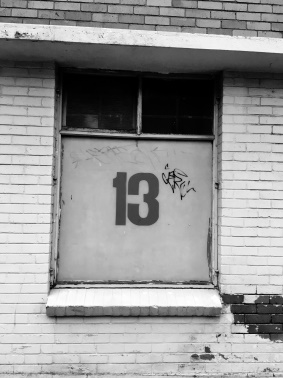John’s life is going really well and people put his success down to ‘good luck’. Meanwhile, Jennifer is having an awful time. In fact if Jennifer opened an undertakers, people would stop dying. Jennifer’s situation is viewed by her friends as being the result of ‘bad luck’.
But what is ‘luck’? We wish people ‘good luck’, sometimes the opposite, although we tend to keep that wish to ourselves. But I ask again, what is ‘luck’?
Well after a lengthy and detailed analysis, I can reveal what ‘luck’ really is.
It’s a word, a noun to be precise. And it’s nothing more than that.
Luck is a word that is used to describe peoples experience of good or bad outcomes, sometimes highly improbable good or bad outcomes. To be honest, why not? Words are there to be used. The problem however starts when we assign almost supernatural agency to luck and we therefore start to think events are beyond our control.
Phil ended up in hospital with a fractured skull because a tin of paint dropped out of the sky and hit him on the head. Later, Phil reveals that he walked under a ladder and everyone knows that walking under ladders can bring bad luck. But it wasn’t bad luck. Phil ended up in hospital because he was careless. Walking under a ladder is a bad idea because more often than not there is someone working at the top of the ladder that might drop something that is usually heavy (like a tin of paint) to the ground below. Phil interrupted the fall of the tin of paint with his head, because Phil shouldn’t have been there in the first place.
Some people think that being hit by bird poop brings good luck. A sales person I used to know was on his way to deliver a pitch that had the potential to be career changing. He prepared for his meeting very well and wore his best navy blue suit in order to make the best possible impression. Sadly, on his way to the meeting he was dive bombed by three seagulls that covered him with poop. He didn’t get the business either. It’s fairly clear therefore that bird poop does not bring good luck. It doesn’t bring bad luck either. It doesn’t bring any luck. He didn’t get the business because all he could think of was about his new suit being covered in bird poop, so he lost focus and delivered a bad sales pitch.
Richard Wiseman is the Professor of the Public Understanding of Psychology at the University of Hertfordshire and he spent ten years of his life on a scientific study about the nature of luck. He reached a really interesting conclusion about so-called lucky people in that by and large, they create their own positive outcomes. But how?
- They are good at noticing chance opportunities.
- They avoid bad situations by listening to their intuition.
- They create self fulfilling prophecies by their positive expectations.
- They have a resilient attitude that means they seek out the positive or make the best of a bad outcome.
Back in the day when I was a sales trainer, a key point I always made was if a sales person expects to lose a sale, then they almost certainly will. If on the other hand they expect to win a sale, then that outcome cannot be guaranteed, but the chances of a positive outcome are much higher. The same goes with life in general. If you expect a bad outcome, then you’ll get one largely because internally you’ve already given up and you don’t notice the chance opportunity that could change your life.
So my point is this. A four leafed clover is a plant with four leaves as opposed to three. It won’t bring you luck. So let’s stop thinking about luck and start thinking about outcomes. So from now on there is no ‘good luck’ or ‘bad luck’, just good or bad outcomes. To a lesser or greater extent we can control outcomes, by adopting some if not all of the behaviours suggested above. Now I know it’s not enough just for me to make such an assertion, so in the coming weeks we are going to look at each of Richard Wisemans’ conclusions and see what we can do to make them a practical reality.
Stay positive...
Photo Credit Hennie Stander on Unsplash

